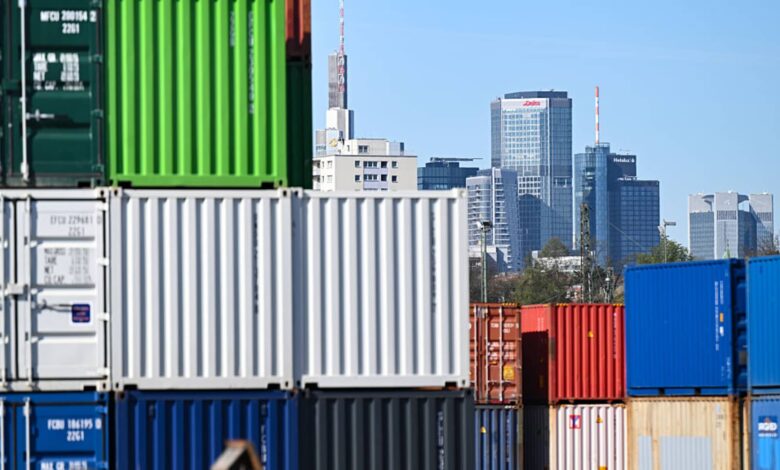Euro zone GDP Q1 2025

Euro zone economy outperforms expectations in Q1, despite global tariff tensions
The euro zone economy exceeded expectations in the first quarter of 2025, growing by a stronger-than-expected 0.4%, according to flash data from statistics agency Eurostat. Economists had forecast a more modest 0.2% expansion for the period, following a revised 0.2% growth print in the previous quarter.
Germany, Europe’s largest economy, saw its GDP rise by 0.2% in the same period, while French GDP increased by 0.1%. However, it was the southern European and smaller economies that shone, with Spain and Lithuania both recording 0.6% growth, Italy at 0.3%, and Ireland at a robust 3.2%.
Despite the positive start to the year, there are concerns about the impact of global tariff tensions on the euro zone economy. US President Trump’s aggressive customs policies have been viewed as a potential trade war against the rest of the world, with fears that the recently imposed tariffs could dampen economic growth in the coming months.
Franziska Palmas, senior Europe economist at Capital Economics, noted that while the latest GDP reading was encouraging, growth is expected to slow down in the next six months due to the effects of the US tariffs. Additionally, any potential boost from Germany’s anticipated fiscal stimulus is likely to be felt more significantly next year.
The euro’s performance was mixed following the GDP release, trading lower against the US dollar but higher against the British pound. Germany’s 10-year bond yield, a key indicator for the euro area, also saw a slight decrease.
The European Central Bank (ECB) has been actively working to stimulate growth in the euro zone, with interest rate cuts and other measures aimed at boosting economic activity. Despite these efforts, economic growth has remained lackluster in recent years.
Looking ahead, the ECB is expecting the euro zone economy to grow by 0.9% in 2025, slightly below its previous forecast. The central bank’s projections for the future will be crucial in shaping its decision-making process on interest rates.
Concerns about the impact of US tariff policies on economic growth were raised by ECB President Christine Lagarde and other policymakers at the recent International Monetary Fund World Bank meetings. The EU is currently facing 20% blanket trade tariffs from the US, as well as additional levies on steel, aluminum, and autos.
While economic sentiment in the euro area fell in April, inflation has been gradually approaching the ECB’s 2% target, reaching 2.2% in March. The latest inflation data is eagerly anticipated later this week, as policymakers continue to monitor the economic landscape and make decisions to support growth in the euro zone.





